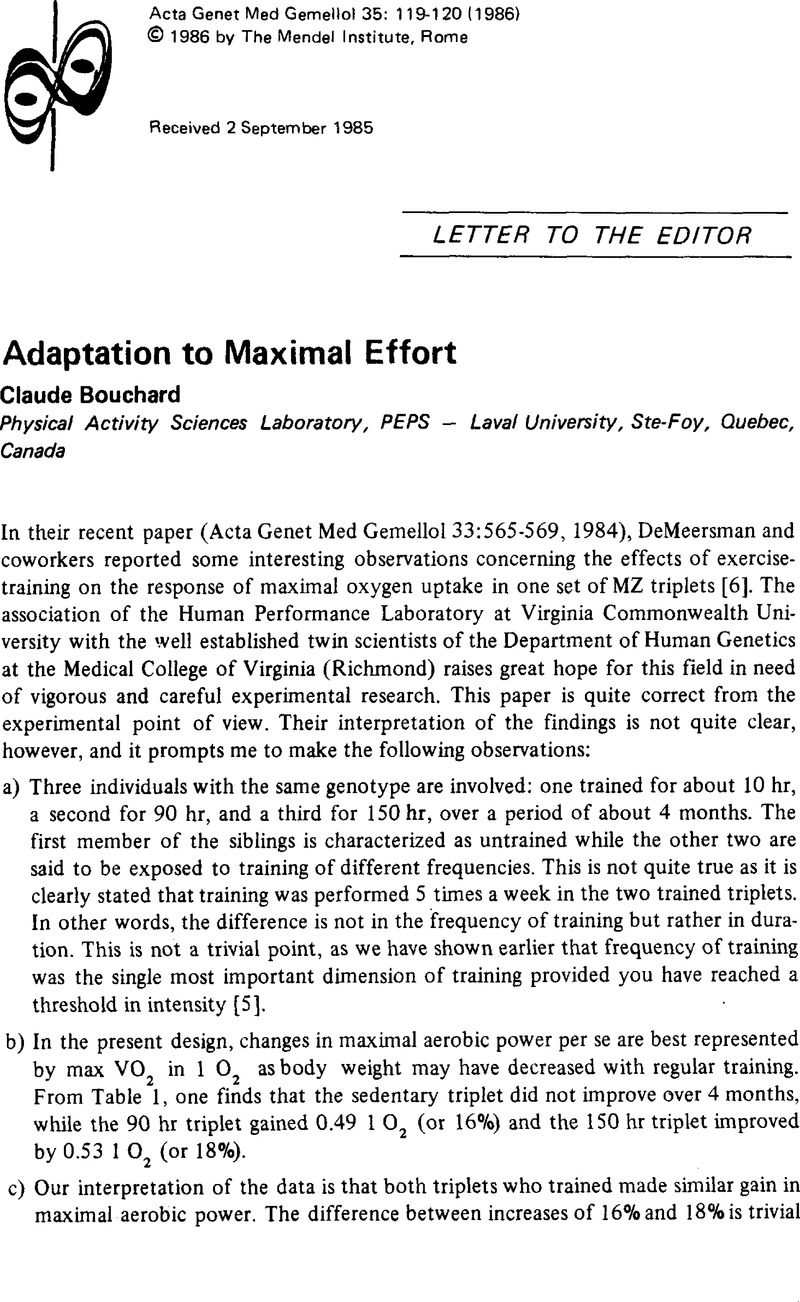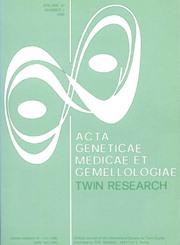No CrossRef data available.
Article contents
Adaptation to Maximal Effort
Published online by Cambridge University Press: 01 August 2014
Abstract
An abstract is not available for this content so a preview has been provided. As you have access to this content, a full PDF is available via the ‘Save PDF’ action button.

- Type
- Letter to the Editor
- Information
- Acta geneticae medicae et gemellologiae: twin research , Volume 35 , Issue 1-2 , April 1986 , pp. 119 - 120
- Copyright
- Copyright © The International Society for Twin Studies 1986
References
REFERENCES
1.
Bouchard, C (1983): Human adaptability may have a genetic basis. In Landry, F (ed): Health, Risk Estimation, Risk Reduction and Health Promotion. Ottawa: Canadian Public Health Association, p. 463–476.Google Scholar
2.
Bouchard, C (1986): Genetics of aerobic power and capacity. In Malina, RM, Bouchard, C (eds): Sports and Human Genetics. Champaign (IL): Human Kinetics, p 59–89.Google Scholar
3.
Bouchard, C, Malina, RM (1983): Genetic for the sport scientist: selected methodological considerations. Exercise and Sport Sci Rev
11:275–305.CrossRefGoogle ScholarPubMed
4.
Bouchard, C, Lortie, G (1984): Heredity and endurance performance. Sports Medicine
1: 38–64.Google Scholar
5.
Bouchard, C, Boulay, M, Thibault, MC, Carrier, R, Dulac, S (1980): Training of submaximal working capacity: frequency, intensity, duration and their interactions. J Sports Med Phys Fitness
20:29–40.Google Scholar
6.
DeMeersman, RE, Schaefer, DC, Miller, WW, Nance, WE (1984): Adaptation to maximal effort: genetic vs environment. A case history. Acta Genet Med Gemellol
33:565–569.Google Scholar
7.
Després, JP, Bouchard, C, Savard, R, Prud'homme, D, Bukowiecki, L, Thériault, G (1983): Adaptive changes to training in adipose tissue lipolysis are gentype dependent. Int J Obesity
8: 87–95.Google Scholar
8.
Klissouras, V (1971): Heritability of adaptive variation. J Appl Physiol
31: 338–344.Google Scholar
9.
Prud'homme, D, Bouchard, C, Leblanc, C, Landry, F, Fontaine, E (1984): Sensitivity of maximal aerobic power to training is genotype dependent. Med Sci Sports Exercise
16: 489–493.Google Scholar


